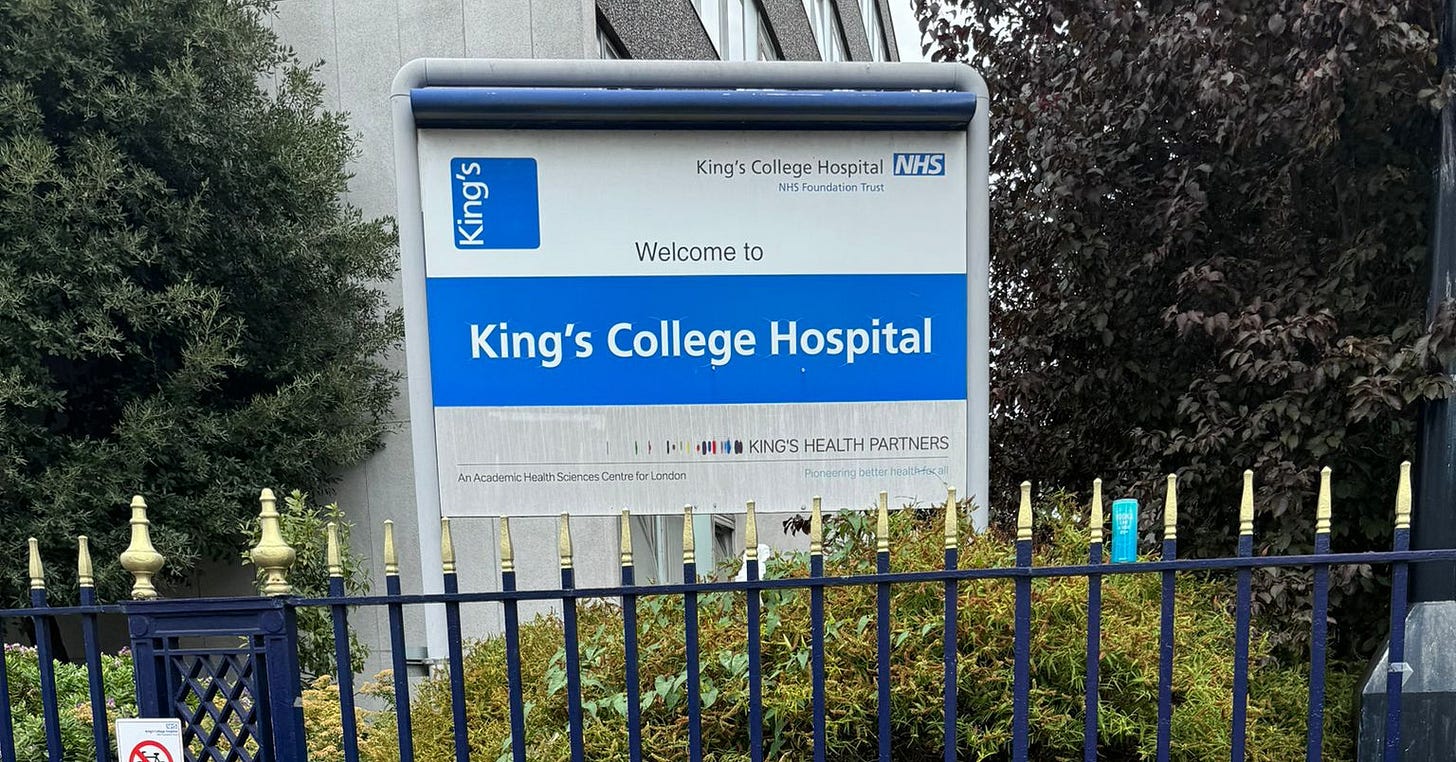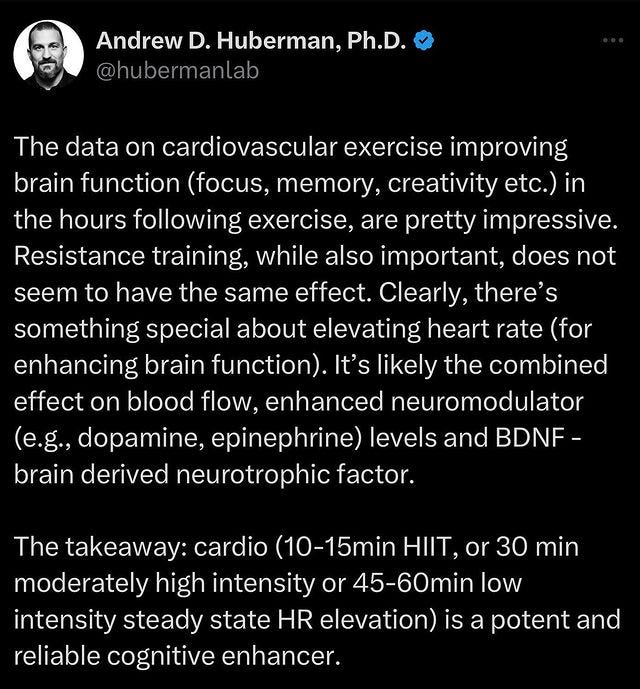Parkinson's, healthcare and AI-powered tech assistance
There is one aspect of the story of my diagnosis that regularly surprises people when I relay it
There is one aspect of the story of my diagnosis that regularly surprises people when I relay it.
I was taken aback, too.
The same private healthcare plan which had fortuitously enabled me to get such speedy testing - a head and shoulders MRI followed by a DaT scan - was equally quick to tell me that it would not cover any further treatment to do with Parkinson's now that it had been confirmed.
“Your policy doesn't cover ‘chronic’ conditions,” I was told at the time, and after I'd questioned it, it was reaffirmed.
There's little point arguing or debating the merits of this, although I am inclined to agree with one friend who pointed out: “Surely a healthcare plan is useless if it doesn't cover you at a time when you most need it."
As has been pointed out by the excellent Movers & Shakers campaigning group, there is no clear on-boarding ramp once you're given the diagnosis of Parkinson's.
Their ‘Parky Charter’ is an effective 5-point summary of the key things patients need from the government but do not get (please sign the charter). Point two reads:
That first call to your local GP surgery is a vulnerable one.
“Hi, errm, I've been told I have an incurable degenerative neurological condition, and I'm hoping you can help?”
Some basic research conducted ahead of making this call had revealed some unwanted information about the state of neurology services in the UK.
“According to the Association of British Neurologists, the UK ranks 44 out of 45 European nations for the number of neurologists for each person with a neurological condition. Adjusted for the population, France and Germany have over seven neurologists for every two that the UK has.” (Link)
I also know from talking to others who are newly diagnosed that not everybody has a supportive experience.
A meet-and-greet Zoom call shocked me by some of the tales I heard.
One person had still yet to be seen by a specialist consultant a year on since their initial diagnosis.
Another said they had been given the news some barely explained pills and sent on their way with a message of "see you in 18 months".
Others had lengthy waits to even be tested for the condition.
I felt almost embarrassed by how smooth the process had been for me and how supportive everyone in the NHS I've encountered since has been.
I must be one of the lucky ones because I've been genuinely blown away at the level of care and expertise I've received so far.
It's just over four months since I was diagnosed and in that time I've seen a consultant, an occupational therapist and a physio.
On Friday, I also saw a specialist Parkinson's nurse. In every encounter, I have felt fully informed, listened to and treated as an individual.
Pleasingly, on the latest visit, I was able to offer a bit of help in return as well by making them aware of some recent accessibility advancements.
So, I'm sharing those updates here as well in case others can benefit from it.
AI-powered dictation software
Since restricted movement and slowness in my right arm are my main symptoms, typing has been an issue.
For someone who has been able to touch-type for more than 20 years, the loss of this ability is infuriating.
My left hand is still game, but the right simply refuses to keep up.
This has led me to dictation as a workaround, but anyone who uses a Macbook (as I do personally and professionally) may know that the native capabilities leave a lot to be desired.
I was spending as much time correcting and grammatically tidying up the sentences as it would have taken me to slowly type them out slowly in the first place.
In my job as a digital consultant, I have written a lot in the last two years about the advancement and implications of generative artificial intelligence.
OpenAI, the company behind ChatGPT, has also trained an English speech recognition model and made it open source, so other developers can build it into their applications.
Below are details of two dictation apps which I have found to be genuinely helpful and almost transformative in helping me get back up to speed at work.
Aiko
A free tool which runs on iOS devices and Macs. I use the app on my iPhone regularly and find it to be very efficient, although eventually had to delete it from my laptop because it made the machine run too slowly during transcription.
You can also export the transcribed text into a number of different useful file types.
Aiko also lets you import audio or video files from your phone and will transcribe those quickly.
I use this primarily for stream-of-consciousness brainstorming or note-taking while on the move.
Although the use case of copying the transcribed text and sending it to myself via WhatsApp so that I could edit it on my laptop was a little cumbersome, until I found…
Wispr Flow
I only became aware of this earlier in the week via The AI Valley’s newsletter, but it appears to be the desktop solution I was hoping for.
Disclaimer: This is not free after the 14-day trial expires, But I have found it remarkably accurate so far, even when dealing with tricky technical terms that often come up in my work.
There is also the option to add custom words to the dictionary. No more manually changing Ian to Iain at the end of every email!
I have used it to write this entire newsletter update with minimal need to go back and change things.
Ironically, I did have to edit that last sentence, which initially read "Joe Bash and change things".
Hopefully one or both tools will prove equally useful to readers of this newsletter and be shared with other Parkinson's patients at the hospital.
Artificial intelligence may one day power the breakthrough necessary to finally cure Parkinson's and other diseases like it. But until that day comes, this is one example of how the rapidly evolving technology will help to make general life more tolerable and efficient for those who have specific medical needs.
I am not saying that is a fair trade-off for the bulldozer it will also drive over the arts and creative industries, but it is something.
One other thing…
Andrew Huberman is a medical professor who has gained a large following over recent years thanks to his regular appearances on popular podcasts such as Joe Rogan’s and Lex Fridman’s.
I believe most of his work and research focuses on the brain.
All Parkinson's patients know that exercise is an important factor in managing symptoms, but I found his takeaway below that cardiovascular exercise is more effective than resistance training when it comes to cognitive enhancement to be interesting.
Clearly, regular strength training, ballistic movement, stretching and flexibility also all have a part to play.
However, this simple formula is relevant to anyone: Elevated heart rate = enhanced brain function.







Hi Iain, I’m loving your posts. The cardio exercise and effect on the brain resonates with me - I’m my most productive after a run, even if I don’t look forward to it.
It’s great you’ve found a good AI tool to help you, and you’re spreading this news. I’m increasingly using chat gpt and its responses are getting better and better as time goes on.
Finally, sorry I didn’t write directly when I heard about your diagnosis. I was so sorry to hear about your diagnosis, but I’m confident that you will find a positive path forward. These posts are truly inspiring and I look forward to reading more. Sending lots of love xox
Another brilliant post